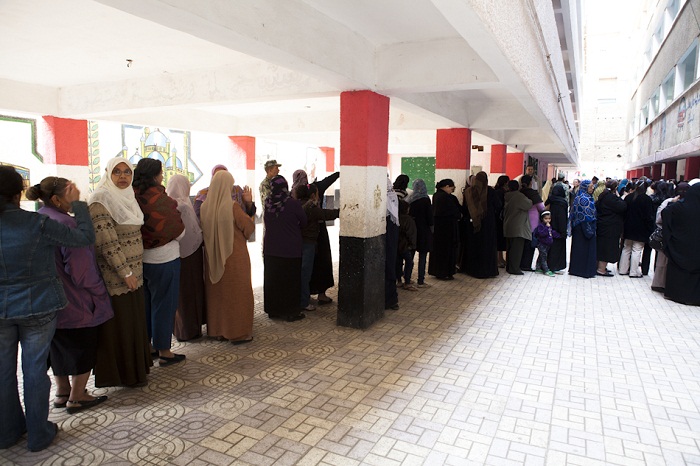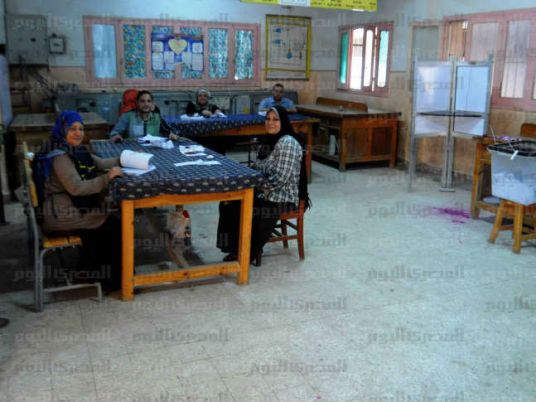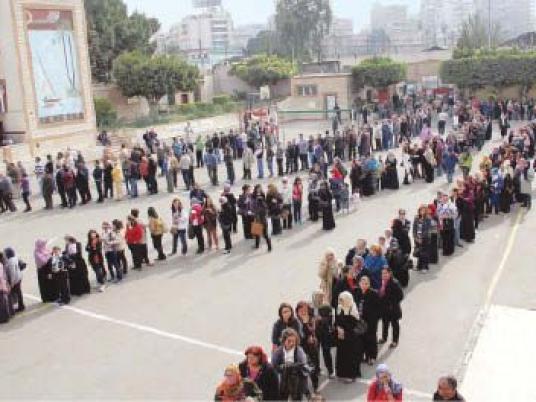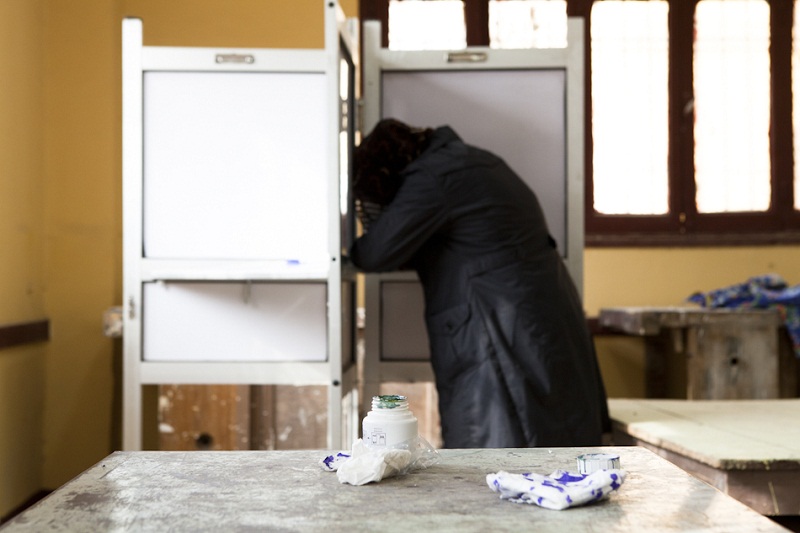
Judge Mohamed Abdel Hady, head of the media committee at the Judge’s Club, said that as of 3 pm the club has received about 340 electoral complaints from various governorates.
Abdel Hady told Al-Masry Al-Youm that the complaints were mainly regarding the absence of judges and the attempts to direct people to vote "yes" or "no."
Meanwhile, Zaghloul al-Balshy, secretary general of the electoral commission, said that he doesn’t understand why the Judge’s Club is following the referendum since they refused to oversee the vote.
When asked about what a voter should do if they suspect that the person supervising the vote is not a judge, Balshy said that voters should file a complaint at the police station if they discover that the polling station is not supervised by judges.
He added that the counting process will be conducted in every polling station, and that results from individual polling stations and governorates will be announced today, while final results will not be announced until after the second phase next Saturday.
Other observers monitoring the referendum have said that the absence of judges and attempts to influence voters and prevent Christians from voting are among the most dangerous electoral irregularities that have taken place on Saturday.
The operation room of the Egyptian Social Democratic Party has said that the judge overseeing voting at the Ibn al-Naffes School, allocated for female voters, prevented Christian voters from entering the polling station.
Various observers have said that in many polling stations the people responsible for supervising the electoral process weren’t judges, as the law stipulates. The Egyptian Organization for Human Rights reported that at least 10 polling stations in Cairo were opened to voters while judges were not present, citing a polling station in the First Settlement as an example.
Also, some non-judicial employees were allegedly supervising and administering some polling stations.
A number of altercations broke out after voters asked the person supervising the election to present their ID.
Al-Masry Al-Youm reported that a judge detained two women in a polling station, filed a report against them and halted voting in the station after they demanded that he show his ID to prove that he is a judge.
Police officers present in the station apologized to the judge, but asked him to show the women his ID. He did, but insisted on the two being detained.
High Judicial Elections Commission head Samir Abul Maty said the commission called on all judges to place their ID in front of them in order to prevent questions on their ability to supervise the referendum.
The Egyptian Association for Supporting Democratic Development said that first electoral irregularity was the delay in opening the poll stations in many of the polling station around the 10 governorates.
But the group emphasized that the more alarming irregularities included attempts to direct voters, such as in the working class district of al-Waily in eastern Cairo, where an FJP member was publicly directing voters to vote "yes." In central Cairo's Sayeda Zeinab neighborhood, the association said that Muslim Brotherhood members were stationed outside the New Sayeda Zeinab School, ostensibly to help voters know their numbers but also telling them to vote "yes."
The same irregularities were reported in some polling stations outside Cairo where, for example in Daqahlia, members of the Muslim Brotherhood were telling people to vote yes. Some people who were described as Salfis by EASDD were directing people to vote yes in Imam Ali School in Ramla district in Alexnadria.
Attempts to direct the voters were not limited only to Islamists, however. EASDD reported that a person called Shousha Imran, an alleged former member of the once ruling National Democratic Party, was trying to direct the people to vote "no," adding that Imran attacked members of the FJP and is being held by the Armed Forces.
The Egyptian Organization for Human Rights said that it reported illegal electoral campaigning in Zagaziq, capital of Sharqiya, where it said cars drive around the city calling on people over loudspeakers to vote "yes."
The organization also said it had documented many instances of unidentified people attempting to bribe or distribute money to voters, saying that in the Fouad Galal polling station in Old Cairo, people were distributing money to voters and urging them to vote "yes."
EOHR also said that it documented various incidents where judges refused to let monitors observe the vote.
One of the many examples was in a Helwan polling station, where the judge denied entry to observers. The Constitution Party's operations room also reported that the judge supervising the Nabiwiya Moussa polling station in Alexandria barred observers from entering the room where voters were casting ballots.
In Ain Shams district, Egypt Indpendent reported that a lack of licenses given to journalists and photographers prevented them from accessing many polling stations, as most of the security personnel were not informed that journalists were not given permits this time.



